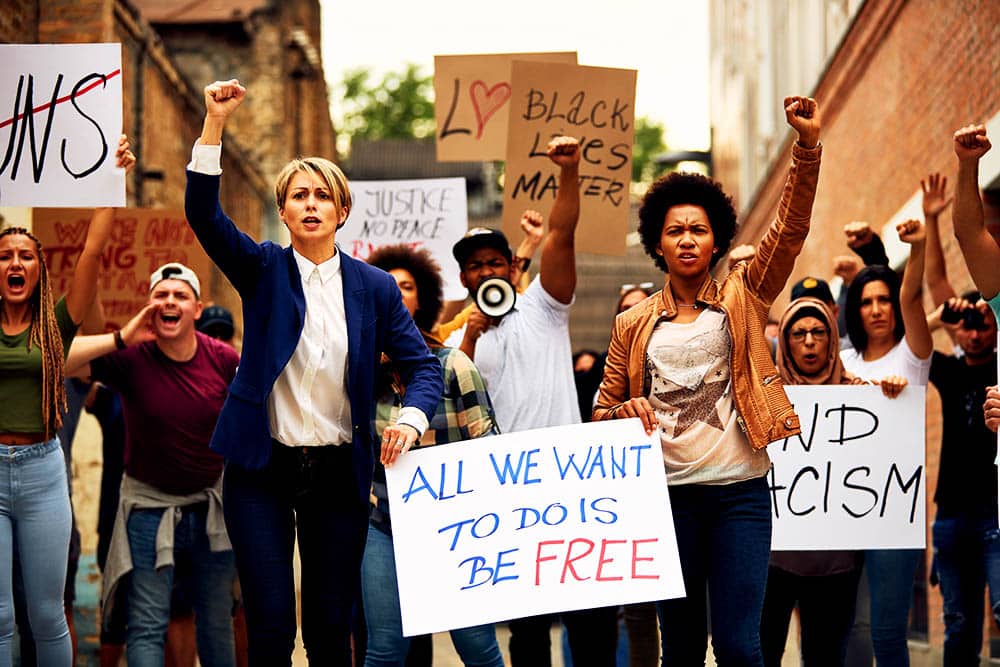The Urgency of Joining the Fight Against Social Inequality
Social inequality is a pervasive issue in many societies across the world. It is defined as the unequal distribution of resources or opportunities among different groups, often leading to discrimination, poverty, and marginalization. While many people are aware of the existence of social inequality, few are taking action to address it. In this article, we will explore why it is crucial to join the fight against social inequality and share some tips on how to take action.
Why Social Inequality Matters?
Social inequality is not just a moral issue; it has far-reaching consequences for individuals, communities, and entire societies. Here are some of the reasons why we must take action against it:
1. Poverty and Vulnerability
Social inequality often leads to poverty and vulnerability. When resources are unequally distributed, some members of society do not have access to basic necessities such as housing, healthcare, education, and employment. This can lead to a vicious cycle of poverty, where individuals are unable to improve their living conditions and are more exposed to various health and social risks.
2. Increased Crime and Violence
Social inequality can also contribute to an increase in crime and violence. Marginalized groups may have limited opportunities to earn a living and may feel excluded from society, which can breed frustration and resentment. Without adequate support systems, some individuals may turn to crime and violence as a means of survival, perpetuating cycle of poverty and crime.
3. Impacts on Mental Health and Wellbeing
Social inequality can have profound impacts on mental health and wellbeing. When individuals are marginalized and excluded from society, they may struggle with feelings of worthlessness, depression, and anxiety. These struggles can lead to a range of mental health issues, including substance abuse, self-harm, and suicide.
4. Undermines Democracy and Social Cohesion
Social inequality can also undermine democracy and social cohesion. When resources and opportunities are unequally distributed, some groups have greater political power and are better able to influence decision making processes. This can lead to a lack of trust and legitimacy in democratic institutions and can contribute to social unrest and conflict.
What Can You Do?
As individuals, we can all take steps to address social inequality. Here are some tips on how to get involved and make a difference:
1. Educate Yourself
The first step in joining the fight against social inequality is to educate yourself. Take the time to learn about the different forms of inequality, their causes, and their impacts on individuals and communities. It is also important to examine your own biases and assumptions and work to overcome them.
2. Speak Out
Use your voice to speak out against inequality. You can do this by attending protests or rallies, writing to your elected representatives, or using social media to raise awareness about important issues. It can be uncomfortable to speak out, but it is essential to create change.
3. Support Organizations Fighting Inequality
There are many organizations dedicated to fighting social inequality. Consider supporting these organizations through donations or volunteering your time. Supporting grassroots efforts can make a real difference in addressing inequality at the local level.
4. Advocate for Policy Change
Policy change is often necessary to address systemic issues of inequality. Consider advocating for policy changes at the local, state, and federal levels. This could include supporting policies that promote greater access to healthcare, education, and employment opportunities.
5. Be an Ally and Advocate for Marginalized Communities
As an ally, you can use your privilege to advocate for marginalized communities. Listen to those with lived experiences of inequality, amplify their voices, and work to create space for their perspectives. Advocate for policies and programs that support these communities and respect their dignity.
The Time for Action is Now
Social inequality is a pervasive issue with far-reaching consequences. Ignoring it will only lead to further poverty, violence, and unrest. As individuals, we can all take steps to address inequality, whether by educating ourselves, speaking out, or supporting organizations dedicated to fighting injustice. Remember, it is never too late to take action. The time for change is now.
Summary
Social inequality is a pervasive issue that impacts communities across the world. It can lead to poverty, violence, and marginalization, and can undermine democracy and social cohesion. As individuals, we can all take steps to address inequality, whether by educating ourselves, speaking out, or supporting organizations fighting injustice. By joining the fight against social inequality, we can create a more just and equitable world for all.
- borrame-noticias - abril 25, 2024
- borrame-animales - abril 25, 2024
- borrame-viaje y turismo - abril 25, 2024

